In the last 50-odd years, PDF has become the key deliverable for the interchange of geological data. While the debate on whether or not PDF is the ideal format for such information flow is still an ongoing one, there are several factors that point to PDF still being the preferred format despite the strides made in big data, artificial intelligence, and related fields where large amounts of data and information need to flow within specific processes from data producers to data consumers.
Part 1. Shortcomings of Closed Electronic Document Format
Proprietary or closed electronic document formats such as DOC and DOCX are widely used to transmit information from the data producer to the data consumer. However, there are several pitfalls that open up when using a closed format:
1. Limited access
First, such documents can typically only be viewed using proprietary software; in this case, Microsoft Word. Since it is not an open standard, the consumer will be unable to access it or extract the data within the document if they don’t have access to the required application.
As a result of this requirement, it impedes the free flow and sharing of geological data between the producer, through the pipeline, and eventually to the consumer of that data. The primary reason is that access to such information is subject to the availability of the proprietary software in question. Most closed electronic document format options have this similar issue and are therefore not ideally suited to geological data interchange.
2. Unreliable
The second hurdle created by using closed document formats is that it increases the cost of data consumption and chances that the data may be modified and therefore unreliable as it progresses through the chain of custody. The cost increase arises from measures that need to be implemented to ensure that accessibility is not compromised by the data being modified in any way as it moves from producer to consumer. The preservation of data integrity, therefore, is at risk unless there are (often expensive) measures in place to prevent this from happening.
Part 2. What to Consider Using PDF in the Interchange of Geological Data
From that perspective, PDF is more ideally suited because it is an open standard format that uses publicly available or open-source information. The advantages of such a format are many:
1. The truthfulness and completeness of the information
PDF files maintain the integrity of the contained geological data and information as it changes hands, which means the data consumer sees exactly what the data producer has input into the document. This ensures 100% data integrity, especially if version control protocols are in place. Even if the data is modified, these modifications are visible and traceable, making PDF a valuable vehicle for data interchange.
2. Security
PDF security has evolved into a robust set of protocols that protects documents from being accessed, modified, copied, or printed. Moreover, sensitive data can be redacted to prevent unauthorized viewing. It is also possible to watermark proprietary documentation, which helps avoid a range of potential issues.
3. Open
The open standard that PDF is built on means that it is not restricted to specific proprietary applications. Most browsers support PDF today, which makes the relevant geological data easily accessible to all without the cost factor playing any role in the process.
4. Multi-platform and Multilingual
PDF is supported on all major operating system platforms and device types. It also supports all major languages. Both of these characteristics make it the ideal format for information interchange of geological data regardless of geographic location or other localized requirements.
5. General Content Support
The PDF format supports all types of content, including tables, text, images, graphs, object embedding, hyperlinks, etc. that are required for effective geological data interchange. Although there are arguments that the standard deliverable - borehole logs - contains information as opposed to data, the fact that PDF files support advanced data extraction in applications such as PDFelement Pro has largely negated the need to manually re-input data into other applications.
6. Easy to Convert
In addition to being able to extract PDF data, PDFelement also makes it easy to convert files to and from the PDF format. File conversion is as simple as creating a PDF file from a different format or converting PDF to other formats with just one click. This ease of conversion helps users work with the data in a PDF file in almost any proprietary or open-source application without the need for additional tools. For instance, a PDF table can be converted into a spreadsheet or HTML file to enable the data to be viewed and managed in its own native application.
7. Prospecting
PDF plays an important role in data interchange when it comes to geochemical and geophysical prospecting. Such reports contain comprehensive data regarding geochemical and geophysical investigations, all the elements of which are supported by the PDF format, including mineral concentration maps, site photographs, tables with the mineral content of samples, and so on.
8. Compatibility
As mentioned, PDF is a highly compatible format that doesn’t require any proprietary or paid applications to view. The standard is intended to render the content the same way regardless of OS or device, which gives it wide compatibility with almost any electronic document platform.
9. Network Transportability
PDF is designed for easy sharing via the web, email, and other channels because it can be compressed into lightweight versions of the same document without losing data integrity. Image resolutions and text parameters can be controlled to make PDF files easily transportable on any network, whether it is a closed network with restricted access or an open one such as the Internet.
Part 3. Use PDF Format in the Geological Prospecting Industry
Text reporting is the mainstay of information exchange in the geological prospecting industry. As we briefly saw, geochemical and geophysical reports are typically sent in PDF format due to extensive content support provided by the platform. In addition, using an application such as Wondershare PDFelement - PDF Editor Wondershare PDFelement Wondershare PDFelement makes it even simpler to handle prospecting reports in developed countries. Some of the key features that enable this are listed below:
1. Easy PDF editing with security features
A PDF file can include security restrictions that prevent unauthorized users from modifying the data, but at the same time, authorized users can edit a PDF as easily as editing a DOCX document in Microsoft Word.
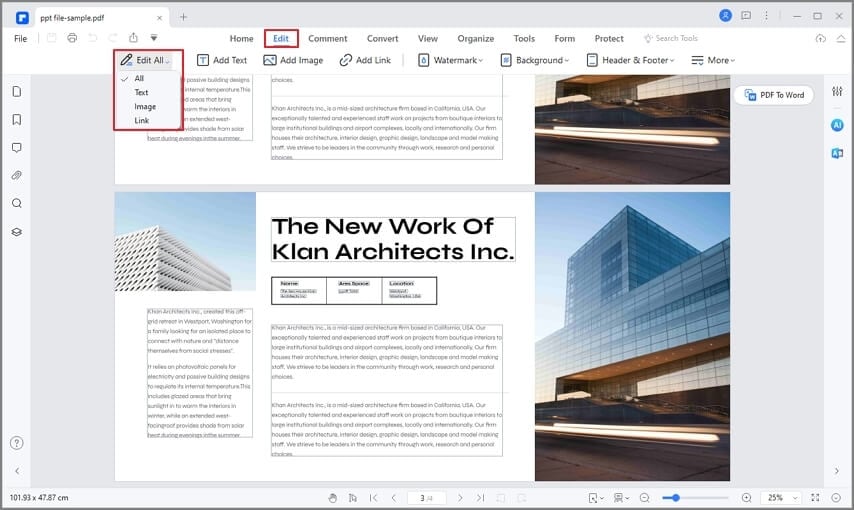
2. Annotations and Electronic Signatures
PDFs can be legally validated with electronic signatures and digital signatures, ensuring data integrity. Moreover, the annotation feature facilitates smoother communication between key stakeholders regarding document specifics.
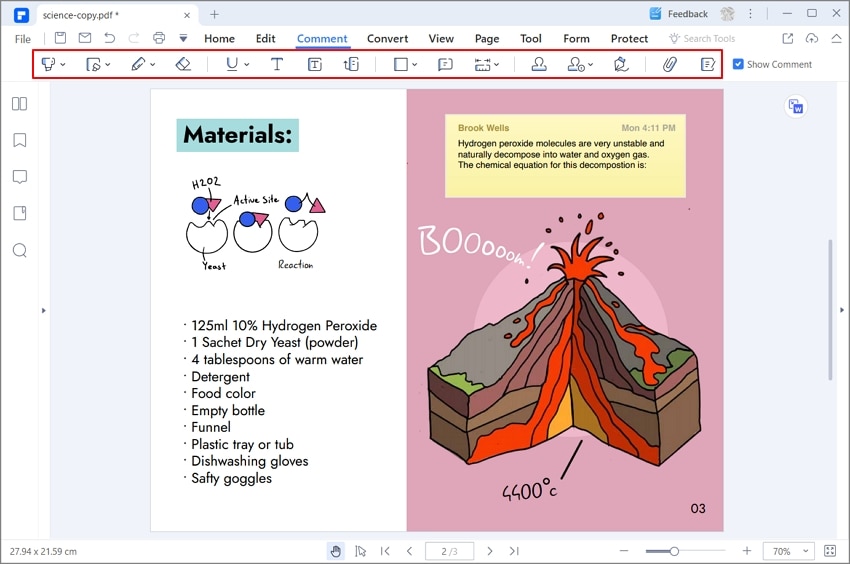
3. PDF Creation and Conversion
PDFelement supports the conversion of over 300 file types to PDF, which helps unify the reporting process for the geological prospecting industry. It can also be used to convert PDF reports into other application-specific formats or open standard formats such as HTML, XLSX, RTF, JPG, etc.
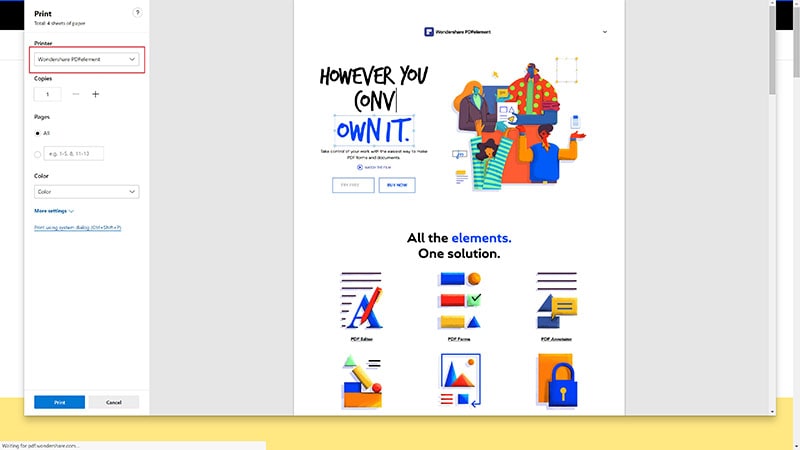
4. PDF File and Page Management
PDFelement allows for easy manipulation of multiple files with the merge and split functions. In addition, pages can be added, removed, or reordered with simple drag-and-drop motions. The Organize Pages view allows users to reduce or increase the size of the pages, split the document, extract pages, and so on.
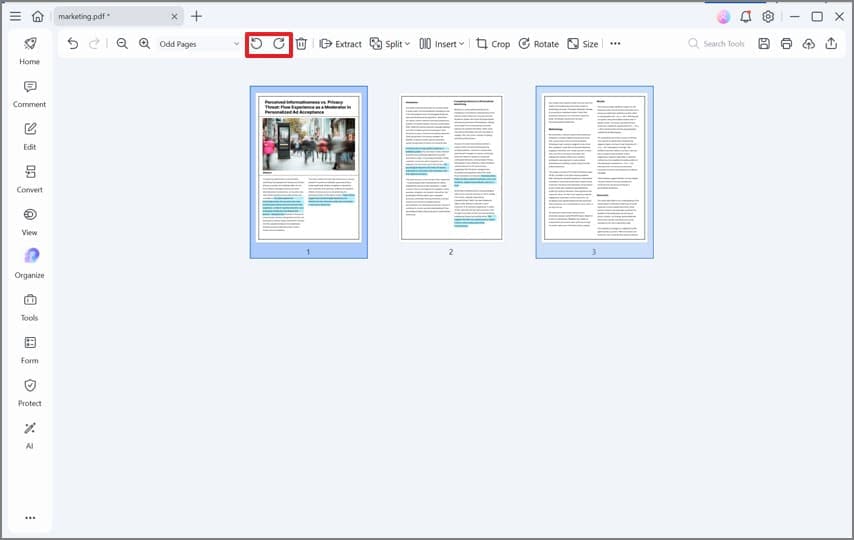
5. Batch Process
Multiple documents can be processed at the same time, and this includes file conversion, data extraction, watermarking, and other processes that are regularly used by key stakeholders.
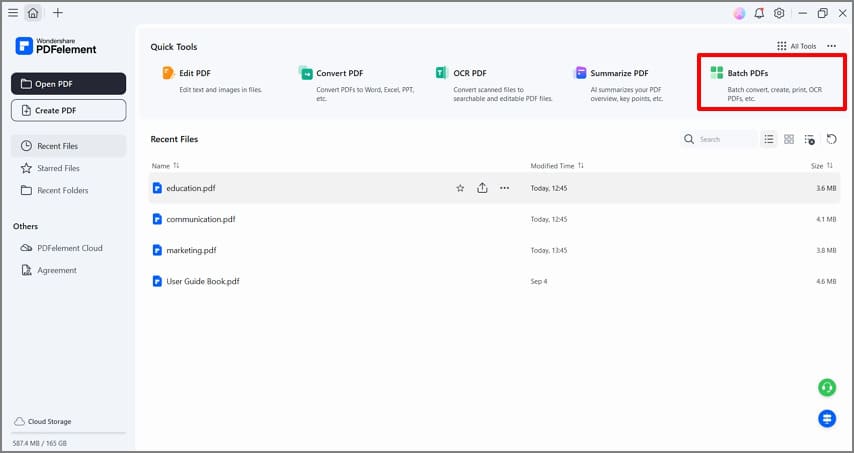
6. OCR
Text recognition is an integral part of the geological data interchange process. The OCR module of PDFelement allows users to directly scan physical documents to PDF, and image-based PDFs can be converted into searchable versions for archiving and editable versions for data modifications.
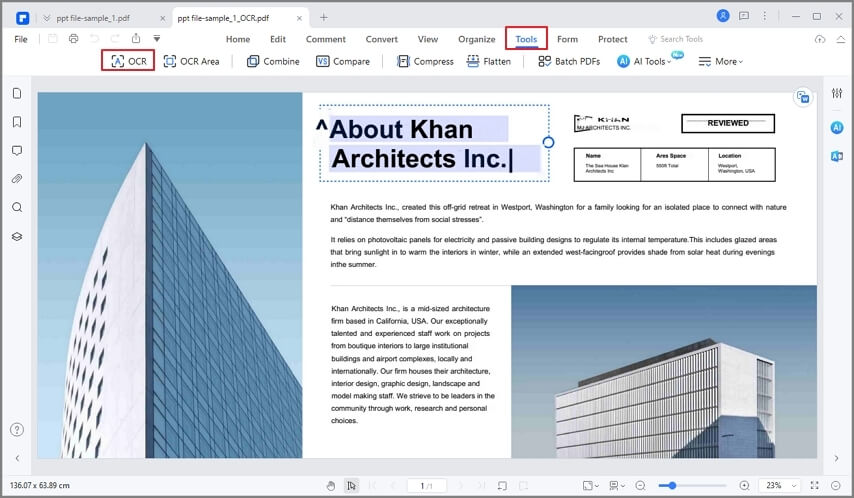
In Closing
The need for an open, flexible, and simple tool for the interchange of geological data is an urgent one. With the primary deliverable being largely outdated and in need of change, the PDF format appears to be a vital cog in the current information exchange machinery. And a tool such as PDFelement makes the process simple and widely deployable with little to no initial training. This is why the application is rapidly growing into a preferred PDF solution by governmental, public, and private organizations worldwide across diverse fields such as geology, design, publishing, manufacturing, eLearning, Insurance, and several others.
Another major advantage of PDFelement is the ecosystem of applications that support multiple platforms and device types. The software is available for Windows, Mac, and iOS, and Wondershare PDFelement Cloud complements these applications by providing a secure PDF storage and bulk electronic signature platform.
Free Download or Buy PDFelement right now!
Free Download or Buy PDFelement right now!
Try for Free right now!
Try for Free right now!
 100% Secure |
100% Secure | Home
Home G2 Rating: 4.5/5 |
G2 Rating: 4.5/5 |  100% Secure
100% Secure


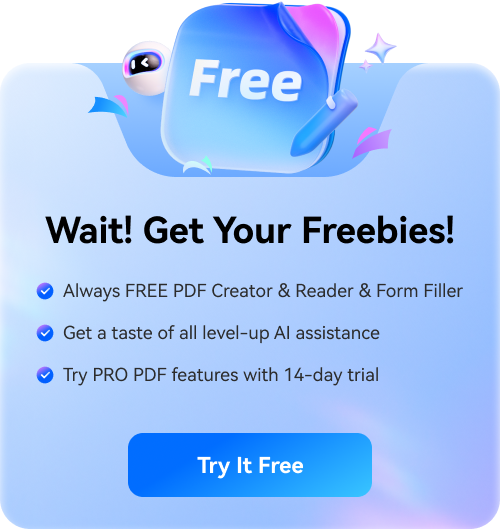
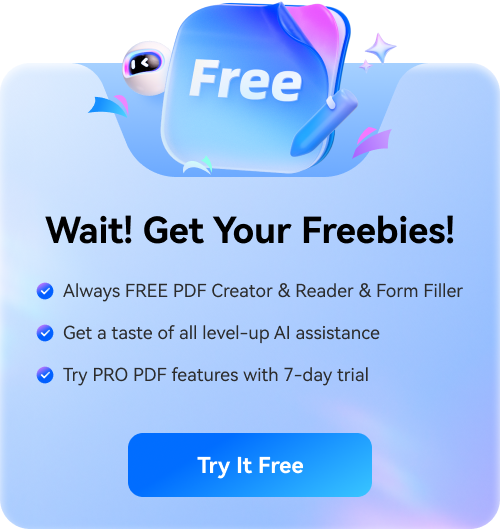
Audrey Goodwin
chief Editor